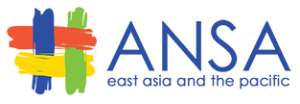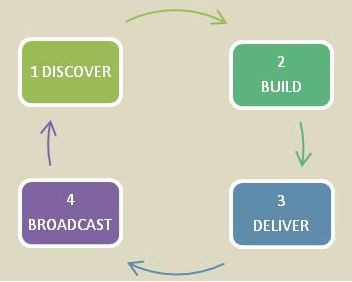A 4-component program for capacity building and training was scrutinized and examined at the Expert-Practitioners Meeting held in Antipolo City, Philippines in May 2010. The program seeks to enable EI practitioners and activists in the 5 participating countries – Cambodia, Indonesia, Mongolia, Philippines, and Timor Leste – to use and innovate Social Accountability framework and tools and be able to meaningfully participate in effective governance of the extractive industry in their respective countries, and eventually, in the East Asian region. ANSA-EAP is seeking resource partnership with the Revenue Watch Institute (RWI) to start up the project.
Preparations for the start up of the project are underway, these include the conduct of small group meetings with prospective NGO partners where the project flow and activities are discussed, and in the process, engendering participation in the project. Likewise, preparations are being made to scan the governance environment of EI in these 5 countries, and across the region. The program will draw on some existing global standards, applicable to specific phases of the EI value chain, and other relevant policies around revenue transparency and governance of the extractive industry. These include the Equator Principles (EP), the Voluntary Principles of Security and Human Rights, the EITI framework for the phase of tax and revenue collection, management and allocation, and the Global Reporting Initiative for the phase of extraction.
Mainstreaming Social Accountability in Extractive Industry (SAc in EI) through the Discover-Build-Deliver-Broadcast Programme Framework
The Programme Framework that will be used in this capability building project is a 4-component project cycle composed of the Discover, Build, Deliver and Broadcast blocks. The Programme Framework defines the delivery mode, instructional style, delivery style and structure of training programs. In examining how social accountability will b be enhanced in each value chain link, the target participants shall be asked to use a Discover, Build, Deliver and Broadcast step process.
Within each main step, the four component cycle can likewise be applied as sub-steps. The Discover Block, for example, may have its own Discover- Build-Deliver-Broadcast sub-steps. The Discover sub-step may be the collation of materials for the research. The Build sub-step may be the building of the participants’ capability in social research. The Deliver sub-step may be the conduct of social research using the new methodology taught through the mentoring program. The Broadcast sub-step may be the reporting and sharing of the research.
Discussions with other stakeholders to broaden partnerships for the program will be undertaken in the coming months; e.g., follow-up dialogues with the Chamber of Mines in the Philippines on the uptake of the Extractive Industries Transparency Initiatives in the country, with the Australian Agency for International Development (AusAID) to promote participatory governance in EI.
Executive Summary
Introduction and Background
Accomplishments and Activities Undertaken
Annexes
Cambodia Case Studies (by Cambodian Center for Independent Media)
CCIM, Improving Dialogue Affected by Mining
Indonesia Case Studies (by PATTIRO, Bojonegoro Institute and YPSHK)
PATTIRO and Bojonegoro Institute, The Voice From Ring One
YPSHK, PATTIRO, Scoring the HSE and CommDev Program of PT Antam
Philippine Case Studies (by Cordillera Volunteer Missioners and Marinduque Council for Environmental Concerns)
CVM, Journey to the Copper and Gold Dust Trails
Timor Leste Case Studies (by Luta Hamutuk)
Luta Hamutuk, Tracking Local Content In Timor Leste
Related Documents
Related Articles
EI Partners in East Asia and the Pacific
Mainstreaming Social Accountability in the Oil, Gas, and Mining Industries
Mainstreaming Social Accountability in the Governance of Extractive Industries (offsite)
Key Stakeholder Groups in Benguet Buy Into Constructive Engagement in Mining

